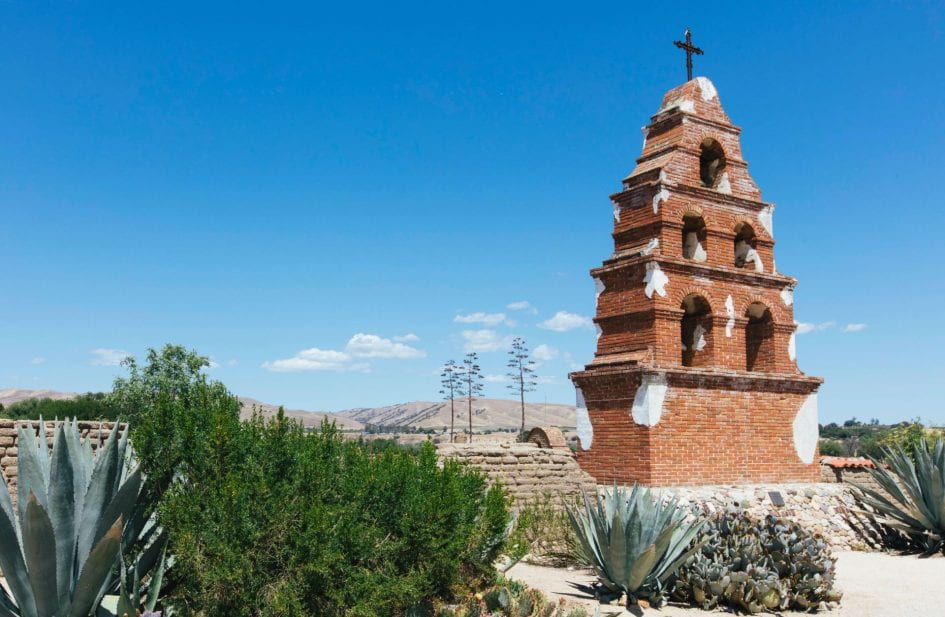This issue of Pierless Bridges, emerging after pandemic restrictions began lifting, appropriately celebrates the wide world we re-entered, with an emphasis on nature in many aspects — from human nature to our common home on planet earth. We were inspired by influences near and far. Pope Francis’s environmental encyclical Laudato Si serves as our foundational point of reference for interpreting our relationship with the environment as understood through the lenses of Catholic Social Thought and the Ignatian tradition. On our own grounds here at USF, Commonstrust: artists and the commons, a 2022-23 exhibit on the theme of ecology and environmental justice at the Thacher Gallery, serves as a striking visual companion to Laudato Si. Some of the artists featured in the exhibit have shared their work to illustrate this issue. As described by gallery director Glori Simmons, “Commonstrust: artists and the commons, features six artists whose works interweave essential elements of the commons: ecology, culture, and trust. The concept of the commons—air, water, land, and humanmade shared spaces such as gardens, parks, sidewalks, libraries, and schools—reminds us of the benefits of communal places and the benefits of working together to care for and preserve our natural resources. The commons link us to each other and to nature.”
Other examples at USF of faith doing justice in communal spaces includes the effort led by Chad Baron, who organized a year-long speaker series on integral ecology in partnership with USF faculty and the Ignatian Solidarity Network. He describes this experience in the article, “Illich and the Snail: Degrowth for Post-Growth Development.” Supported by a generous gift from Robin and Mary Godfrey, parents of our University Minister Donal Godfrey, SJ, Associate Professor Sergio De La Torre and his class Artist as Citizen, created a mural to adorn Toler Hall and graciously allowed us to feature the mural on our cover. The class was inspired by both the Pope’s encyclical and the kind of wisdom-informed by works like Kouslaa Kessler-Mata’s social analysis and reflection, “Owning our Colonial Past and Present: Commitments and Responsibilities of AJCUs to American Indians.” University Historian Emeritus Alan L. Ziajka broadens our understanding of this betrayal of our common trust with his contribution, “A History of Jesuits and Native Americans.”
Human nature moving towards a vision of a common trust is more deeply explored in efforts like the Lane Center’s collaboration on “The USF Interfaith Nonviolence Initiative” described by Jonathan Greenberg of the Institute for Nonviolence and Social Justice. We also hear from Catholic youth discerning their calls to justice through their participation in the Synod on Synodality, gathered and interpreted for us by Stephanie Felton, our Lane Center program assistant and graduate student in the School of Education. Looking more specifically at the Church after COVID, Erin Brigham and Julia de Prinz, VDMF introduce themes from their community-engaged research project, which explores how one Jesuit parish has experienced faith during the pandemic.
A quartet of Lane Center Faculty Fellows diversify our understanding of humans and nature as each, from her own disciplinary perch, brings insight to how educators can advance and enrich the mission at Jesuit universities with a sense of shared stewardship of our common spaces. These essays include Camille Angel’s description of an Ignatian pedagogy rooted in context, ”How One Rabbi is Queering Religion at the University of San Francisco”; Star Plaxton Moore’s wise meditation, “Proclaiming the Power of Humanizing Spaces with Cura Personalis in the Pandemic Era”; Nora Fisher Onar’s brave exposition, “Confronting Us vs.Them by Pluralizing Us: Building Coalitions in the Age of Populism”; and Leigh Meredith’s candid reflection on her journey through Ignatian pedagogy in “On Education as Invitation: Learning to Learn the Jesuit Way.”
Contemporary experience blends with tradition in many of the features in this issue. Lane Center Board member Carol Miller, SND, lifts up the best of humanity in her reflection, “The ‘Soul as Bold’: The Force of Faith,” taking as her starting point the Emily Dickinson poem that inspired our title, Pierless Bridges. From there she offers other compelling examples of bold souls. Taking a more scholarly approach, Lo Schiavo Faculty in Residence, Joseph Nguyen, SJ and Department of Theology and Religious Studies Chair, Mark Miller, offer complementary readings of the great Jesuit theologians Karl Rahner and Bernard Lonergan, pointing us to their relevance for building common trust. Finally, outgoing Faculty Chair for Mission Integration at the Lane Center, Kimberly Rae Connor’s reflection, “Beautiful Changes: Poetry and the Spiritual Exercises,” concludes the issue by returning us to the beauty of nature and how our relationship to nature is reflected in the dynamics of poetry and the Spiritual Exercises. In part a tribute to the Ignatian Year that commemorates St. Ignatius’s “cannonball moment,” and his conversion to a life dedicated to God, Kimberly’s essay leads us to affirm that as long as we can recognize beauty, we are “not done with our changes.” With God’s help, we can do better, for human nature and Mother Nature.

